Page 167 • (3,649 results in 0.028 seconds)
-
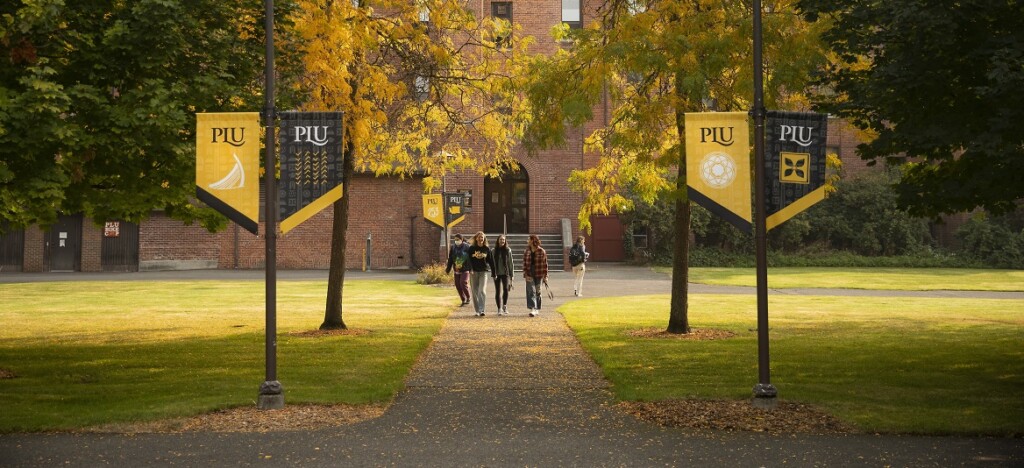
, see – or most importantly – where to eat! Read Previous What’s in our room? With Christian Cutter ‘24 Read Next Special Education Major Gavin Knapp ’23 Discovers the Beauty of Returning to His Childhood School District LATEST POSTS Summer Reading Recommendations July 11, 2024 Stuart Gavidia ’24 majored in computer science while interning at Amazon, Cannon, and Pierce County June 13, 2024 Ash Bechtel ’24 combines science and social work for holistic view of patient care; aims to serve Hispanic
-
.” What is a skill that you learned at PLU that has transferred to your “real world” work? “Though I’m certainly still in the academic world, the education I received at PLU has certainly given me a strong base for adjusting to such a diverse city and an intensive program. PLU’s emphasis on vocation allowed me to find my passion (theatre) and therefore gave me the drive to seek out a way to continue learning, while not being afraid to really strive to fulfill my vocation. As for the adjustment to the
-
.” What is a skill that you learned at PLU that has transferred to your “real world” work? “Though I’m certainly still in the academic world, the education I received at PLU has certainly given me a strong base for adjusting to such a diverse city and an intensive program. PLU’s emphasis on vocation allowed me to find my passion (theatre) and therefore gave me the drive to seek out a way to continue learning, while not being afraid to really strive to fulfill my vocation. As for the adjustment to the
-
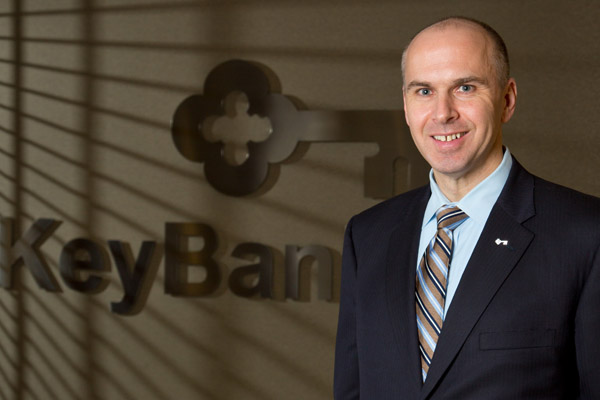
through PLU’s School of Business. It was those experiences, he says, that helped him get to where he is today. Q: What motivated you to attend PLU, and how did it prepare you for your career? Did you ever imagine being a bank president? Steve Maxwell: I wanted to find a school that was fairly close to my home in Portland and offered a first-rate education. And I wanted to play college basketball! PLU had been recruiting me to play for them and after meeting the coach and visiting the campus, I was
-
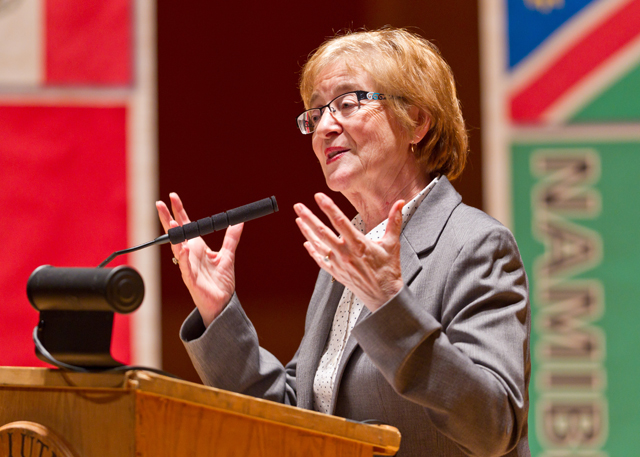
wing you come from.” But it isn’t just a matter of legislation and blame can’t be placed solely on corporations and governments, Barlow said. The fault lies with all of us, and all of us buying into “the myth of abundance.” First our attitude toward water needs to change, and then we need to see how water relates to other issues, such as education or political exploitation. “Water is the great teacher. It opens everything,” Barlow said. “Dare I say, we have to start seeing water as sacred.” Read
-
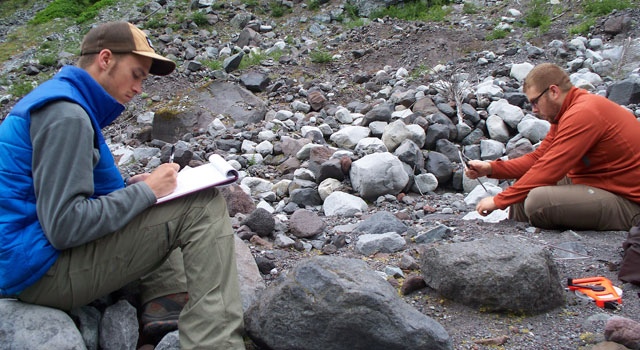
When college students dream up the perfect summer, it usually doesn’t involve getting up at 3 a.m. to take water samples, living out of your backpack, and sleeping in the trees. But for geosciences major Nathan Page, there was no better way to spend the last summer of his undergraduate education. Page set out on a series of research trips with four of his peers and Assistant Professor of Geosciences and Environmental Studies Claire Todd to study waste management on Mt. Rainier. It was a great way
-

Seattle-area native spent much of her time listening to KUOW, their local National Public Radio station.“We have a radio in my kitchen, right above where we cook, so pretty much I’d wake up, come into the kitchen and KUOW would be on every single day,” Rich said. “So that style of radio is very close to my heart.” This fall, Rich is pairing her love of audio storytelling and theatre education to create an independent production of “The War of the Worlds.” Based on the H.G. Wells novel, the show’s
-

writing content for the nonprofit’s website. Her beat was technological solutions and global education. She wrote pieces about artificial intelligence as a solution to poverty, and the education of refugees to name a few. This sort of research-based, nonfiction writing is Hurtt’s comfort zone. In her junior year she switched majors from biology to English literature, making one of the biggest jumps between academic disciplines. But her experience in analytical writing was one of the reasons she
-
in Nordquist Lecture Hall recently, but Wilkens knew he had to stay. Friends and colleagues would be quickly butchered if he didn’t. In a two-hour talk organized by PLU, Charles Wright Academy and the Washington State Holocaust Education Resource Center, Wilkens urged the audience to realize that one person can make a difference, even in a dire and insane situation. “While there are many stories of neighbors turning in neighbors, there were many who did not,” he said. In fact, is was the
-
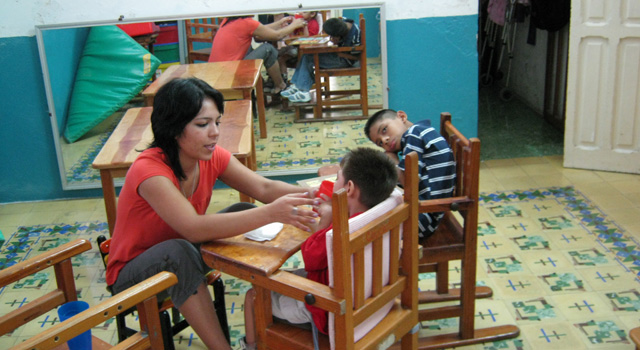
and Leadership at PLU, started his teaching career at the Frances Haddon Morgan Center, a state institution in Bremerton, which closed earlier this year. At the time, it served autistic children ages 3 to 13. “That was my first introduction really to teaching and being responsible for the instructional management of kids with those types of disabilities,” Williams said. . http://www.youtube.com/watch?v=iCaTNPMKwgQ Thirty-seven years later, Williams is still doing this work. “I’m still working with
Do you have any feedback for us? If so, feel free to use our Feedback Form.


